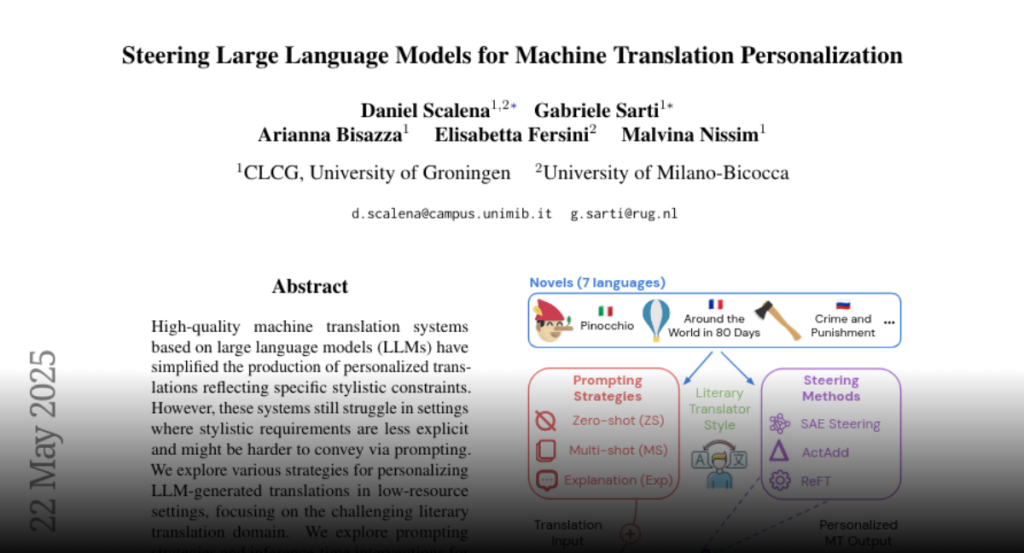Strategies including prompting and contrastive frameworks using latent concepts from sparse autoencoders effectively personalize LLM translations in low-resource settings while maintaining quality.
High-quality machine translation systems based on large language models
(LLMs) have simplified the production of personalized translations reflecting
specific stylistic constraints. However, these systems still struggle in
settings where stylistic requirements are less explicit and might be harder to
convey via prompting. We explore various strategies for personalizing
LLM-generated translations in low-resource settings, focusing on the
challenging literary translation domain. We explore prompting strategies and
inference-time interventions for steering model generations towards a
personalized style, and propose a contrastive framework exploiting latent
concepts extracted from sparse autoencoders to identify salient personalization
properties. Our results show that steering achieves strong personalization
while preserving translation quality. We further examine the impact of steering
on LLM representations, finding model layers with a relevant impact for
personalization are impacted similarly by multi-shot prompting and our steering
method, suggesting similar mechanism at play.

